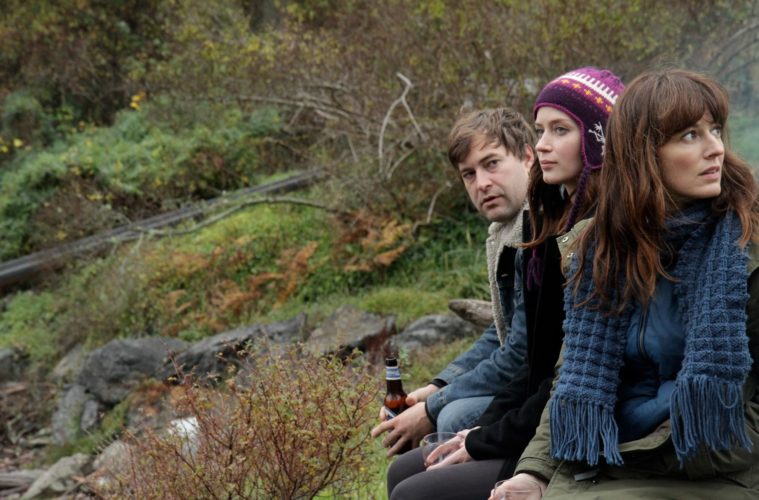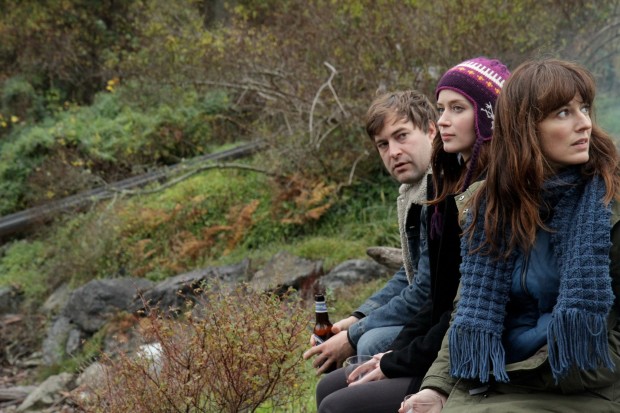
Lynn Shelton has made a splash in the independent film section for the last few years. She truly made a name for herself with Humpday, an interestingly moving film starring Mark Duplass and Josh Leonard about two straight guys who explore making a gay porn with entertaining results. Her newest film, Your Sister’s Sister, explores the unbreakable bonds of siblings and how that can complicate things. Duplass returns as he is stuck between Emily Blunt and Rosemarie DeWitt. Charming, thoughtful, and full of awkward moments that are truly funny, and a mix of sad, the film plays largely within the confines of a cabin that isn’t quite big enough. Earlier this month I had a chance to sit down with Shelton in Dallas as we discussed the genesis of the film, how her parents react to her movies, her directing stint on Mad Men, and much more.
The Film Stage: Humpday was your third film. A little odd of a title. And of course the subject matter is very, very different. Is it easier to show your parents this kind of film? Do you worry about that kind of stuff at all?
Lynn Shelton: I don’t know if you’ve seen Hump Day, but it’s actually…
It’s tame.
I’m a total prude. So I’m exactly the right kind of person to make a movie like that and then have it guaranteed to be accessible. The biggest problem with that movie was the language in terms of any kind of parental [stuff]. But my parents really liked that film! I don’t know about other people’s parents, but my parents really liked it a lot and were able to see that it was really just about relationships. It’s about friendship, it’s about marriage, it’s about your sense of self. You’re relationship with yourself and the perception you have of yourself and how it doesn’t always lineup with the facts. And that’s really where my interest lies. The premise of Humpday was really a red herring. A bit of a MacGuffin. It’s like, ‘Ooo, it sounds so titillating and sounds so crazy.’ Then you go and you see it and you realize it’s really about these two goofball guys that dare each other to do something they would never want to do. There are the themes of sexual identity and the boundaries of where your sexual orientation lies. How blurry they are. That’s in there and the sort of broader cultural resonance, but really it’s a movie based in relationships and interpersonal dynamics, including your relationship with yourself. And that, again and again, can be seen as a through line in all my films. It’s just something that I’m interested in doing.
I mean I’m a grown up and I do want to deal with grown up themes. I’m not making kid movies. Maybe I will someday, but I’m dealing with adults who are dealing with adult issues. So there might be a little sex in there, there might be some swearing if the characters might actually talk like that in their demographic. I’m not going to sugar-coat or white-wash people. That’s kind of the point, too. One of the biggest themes of Your Sister’s Sister that we’re all flawed. And we all make mistakes. We’re all screw ups and we sort of bumble through our lives. And hopefully we can be forgiven and loved, despite that. I want the audience to root for these people even as they’re making mistakes. They’re well-meaning and they’re trying their best. I want people to sort of root for them.
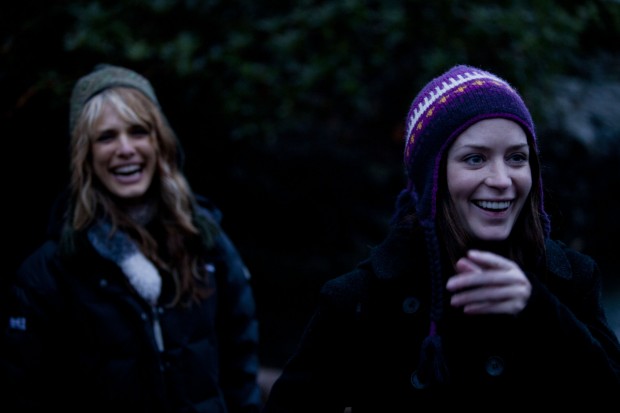
You’ve mentioned in other interviews that you had about 12 pages of outline for Humpday and then you just went into it and filmed. For Your Sister’s Sister, you had about 70 pages, with dialogue. But I noticed you gave creative credit to Mark and everybody else. Does it feel odd getting writing credit for these films? Is that a way that you can say, ‘They didn’t sit down and write with a pen and paper, but they did contribute’?
Well, it’s certainly why I’m giving creative consultant credit to these guys. The reason I’m taking the writing credit is because we sit down in conference with them and we come together every few weeks and we all talk about backstory and who these characters are and that bleeds over into what might or might not happen in the plot. So we’re spitballing, we’re brainstorming together. But I’m the one who is the final arbiter. I’m the one who decides how to prune off. ‘OK, well those are really great ideas but we’re going to take 80 percent of them and throw them out.’ They’re not going to all add up. So, this is what actually happened in the history of these people. And this is what is going to happen in this movie, structurally and plot-wise. And then in the edit room, again, I’m the final, final decision maker about how the script actually ends up. So it is a very collaborative process and I’m very open about that, but I’m ultimately the one who is the decision maker every step of the way. It’s like, ‘You know what? I love that idea, but we’re not going to use it because it’s not going to help me down the road to create a payoff that’s going to work for the audience.’ Or whatever. I’m kind of the one who figures out the shape of the movie.
And then in terms of the actual dialogue, it’s interesting because the WGA has rules about… somebody will have an initial script, and then it gets turned into a pilot for a TV show or something. And you can change every single line of dialogue and as long as the characters are the same and the basic outline of the plot is the same—as long as those things are in place—then the initial person is going to get credit for it. So dialogue is like, ‘Pfft.’ They don’t care. Because a lot of times people write an entire script and it ends up changing on set. They’ll throw out the dialogue or a big bulk of it. They won’t call it an improvised movie, but they’ll end up shifting the lines because the actors can’t make it work. So what you’ll see from page to screen, it often gets shifted a lot. Especially the words themselves. So I feel fine about taking writing credit. But I definitely want to give a nod to the collaborative nature of the project so that’s why they get that credit.
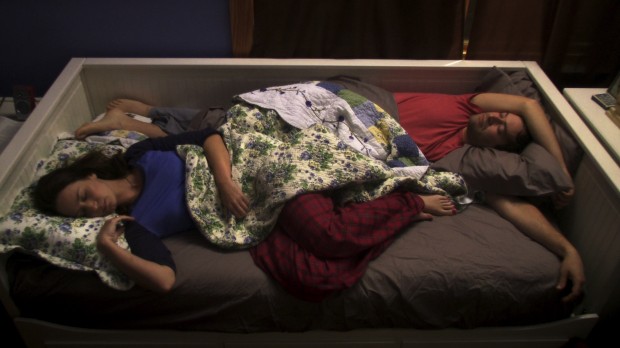
I’m curious about the setting itself. Puget Sound is where they all sort of convene on this little cabin. What was the idea for that location? Was it just something available?
Well, Seattle is on Puget Sound, so it’s salt water but Sound is this giant bay that is the opposite of a peninsula. It’s this beautiful body of water in the middle of Washington state. If you look at the shape of Washington state there’s a dip in it, and that’s Puget Sound. And there’s a lot of islands. And they’re gorgeous. You can take ferries. It’s also a tradition to get on your bicycle and bicycle up because you can sit on the ferry for a few hours and then get on these islands. It’s a really beautiful place to bike. So that’s why she suggested that. Someone said, ‘That seems so weird.’ But no, no, it’s actually a thing you do to get up to the San Juan [Islands]. But Mark gave me the idea. He called me and said, ‘OK, guy and girl, best friend, and he’s in a bad way because he’s lost his brother recently. She says, ‘You’ve got to get your head together. Think about your life.’ She sends him up to her family’s getaway.’ And there, the original idea was that he thinks he’s going to be alone but he meets her hot, young mother.
[Both laugh]
And then the best friend shows up and it turns into this weird love triangle with this mother and daughter. And it was originally set in the East Coast. He envisioned it was in winter and they’d be sort of isolated in the snow in this cabin in the woods. It was going to be a Duplass Brothers movie and they realized because it was about a guy who lost his brother it was going to be too close to home for them to direct so he still liked the idea and asked if I wanted to direct it. And he would still be in it. So the first thing I did was two things. I changed the mom to a sister because I really thought that would be more interesting or better to deal with. I still think it could have been good in its own right, but I wanted to do that. And then number two I wanted to set it in the Pacific Northwest. Where I make all my movies. Where I live and I have this great crew who are right there and available. So I immediately knew it had to be an island. I think the reason I wanted to put it on an island was because when you’re physically isolated from the rest of civilization, there’s something extra remote about it. You’re separated from the land of the living and you’re just off in your own little world. It also opens up the space mentally for you to do things and maybe behave in ways that you wouldn’t normally do or behave. I liked that idea. I thought it would help throughout the whole movie no matter what’s going on emotionally to be open for new possibilities.
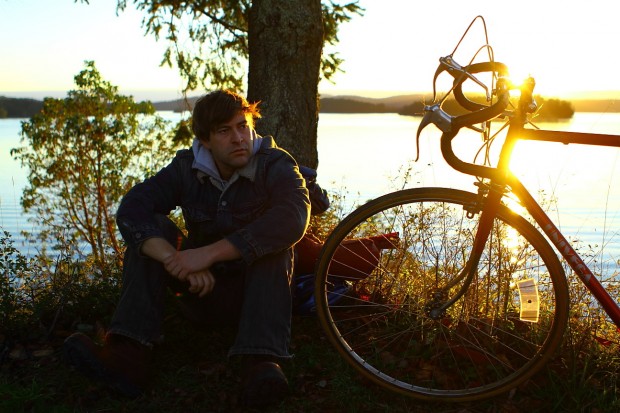
There’s a line in the beginning of the film, that Mark says that I latched onto. Everyone’s memorializing his brother’s death. The one year anniversary, and he gets up and says that it’s kind of bullshit that people are being so generous and nice, and that’s all they have to say. No one is saying anything negative, or even different. It’s just praise. There’s actually a book, and I’m not sure you’re aware of it, called Speaker for the Dead by Orson Scott Card. And in this book, there’s this idea that a guy goes around a community when someone passes away and gets a real feel for this person. So it takes time to get past the praise and the mourning to really find this person’s flaws, triumphs, and the whole picture. And then he does a speaking at the funeral. But I’m just curious where that idea came from. Was it Mark’s? Was it something you’re interested in?
Yeah, it came up because I really like the idea of introducing a character flaws first. And then having an audience sort of warm up to a guy. Because we’re not seeing him at his best, most shining moment. I mean, he’s ruining this party. Really bringing this party down. He’s challenging this perception that these folks have of his brother of this untarnished memory of what an incredibly great guy he was. But it seems like, ‘Why are you being so disrespectful?’ But by the end of his little speech, I hope that you realize the pain he’s in. And you realize that he loved his brother and knew him better than anybody else in that room. That idea. I was really drawn to that idea. I think there’s also jealous there. The idea was that Jack was not close to his brother when he died, so Al, his friend, had spent a lot more time with him recently. He just feels usurped and replaced in a way. So it’s like, ‘Who is this guy who thinks he can…’ So there’s pettiness too. ‘I knew my brother way better than you knew him. And I’m going to prove it to you by telling you he was a little shit!‘ All of that, I just thought it was so juicy. And a really interesting kind of uncomfortable way to start off a picture and to introduce a character as well. And for you to not know what you think of this guy and then to soften. ‘Oh, God, he’s just in a really bad place.’ It was kind of a combination of all of those things. But I also think it’s a real syndrome, too. People tend to not speak ill of the dead. And in a way you are dishonoring them. I think I agree with him. Because you’re not remembering that person as the whole person that they were. And that book sounds great. I’m going to have to look it up.
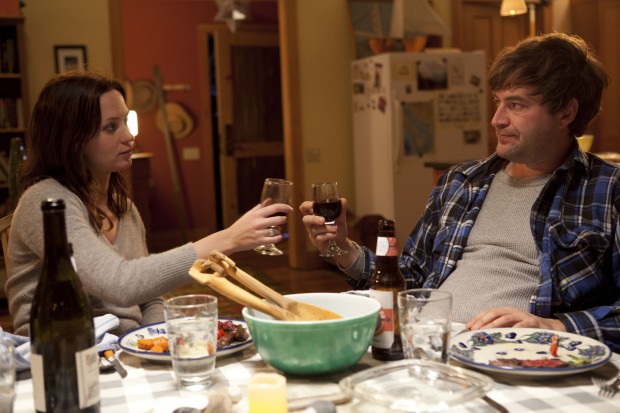
Before I let you go, I just want to talk about you working on one of my favorite shows, Mad Men. I sent out a tweet last night saying that I better keep this towards the end otherwise it would derail the entire discussion.
[Laughs]
But when you come in on this show, that you were obviously a big fan of, were the wheels in motion already or did you have a lot of input on that episode? Because it seems like, not that they are hiring directors to hold the actors’ hands, but [creator and showrunner] Matthew Weiner knows what he wants, and this is what he wants…
Very much so.
So, was there a lot of creative input on your end?
The creative part comes in the director’s job. The director’s job is to be the one who holds the creative vision… the torch. The ultimate decision-maker to make sure that creative vision is fulfilled. And in this case the creative vision is not my own. It was Matthew’s. So, in a way it’s even harder because I’m channeling somebody else. He’s not on set. I’m there and I’m the one who has to make that decision. So the creative part of it comes when you’re collaborating with the cinematographer and the production designer and the actors, especially, in order to make sure that vision is fulfilled. So you’re constantly making decisions. Constantly. ‘Is the ashtray going to be here in the foreground? Or is it going to be here?’ Or, how are we going to find the shape of this scene and how am I going to help this actor unlock that emotional moment? And how are we going to move the camera to capture that? You’re constantly making decisions. It’s not like it’s a machine that’s just up and running and you sit back and go, ‘OK, well, all the creative decisions have been made so you just go ahead and do it.’ The director has to be in there, making sure it all comes to the fore. It’s just that it’s not my creative vision, it’s Matthew’s.
So when I’m with him during prep, which I have few precious hours and I’m typing every word that comes out of his mouth, asking him as many questions as I can think of. Because on set, there’s going to be all sorts of times where I’m like, ‘Shit, I forgot to ask him that.’ So I’m just going to have to channel him and make my best guess about what he would be doing if he was there. It’s akin to Martin Scorsese directing a film by proxy. It’s crazy. It really should be him directing every episode, but there’s no possible way because he’s got so many other things to do. And then there are times too, when the director, in a small way, they’re able to do what he wouldn’t have done, but ultimately he will hopefully be OK with.
[Both laugh]
‘Well, that’s alright.’ That’s what it’s about. Having a team of people able to fulfill your vision and hopefully you’re hiring the right people and the decisions they make are one’s you’ll be OK with. So, yea, it was an enormous honor and a really fun experience to get to work on that show. And it was one of the hardest things I’ve ever done. [Laughs].
So, how do you get on another episode?
I don’t expect to because up to that point, I mean it seems like they’re shaking it up this season, but up to that point they had had their stable of people that they had worked with time and time again, and then they would just bring in one guest director as sort of a breath of fresh air. I was always expecting it to be a one shot thing.
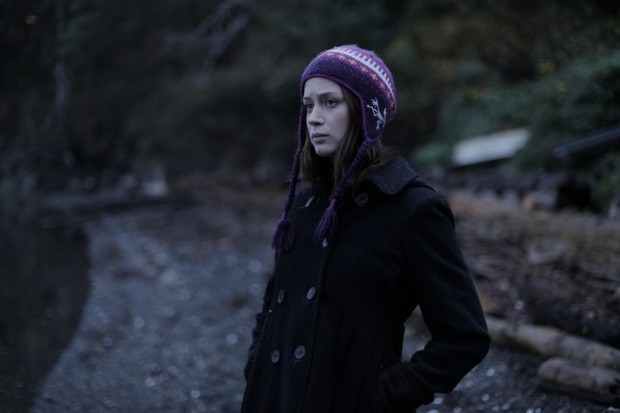
Your Sister’s Sister is now in limited release.

